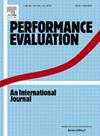别忘了我:从美国评估客户的角度看评估的独立性——一项探索性研究
IF 1
4区 计算机科学
Q4 COMPUTER SCIENCE, HARDWARE & ARCHITECTURE
引用次数: 3
摘要
政策评估文献强调了评估的独立性对保证客观证据收集的重要性。在这方面,评估人员与客户的关系是至关重要的,因为它包含固有的紧张关系,这是由于独立评估的必要性以及对客户利益增加响应的要求。尽管存在这种独特的关系,但客户视角直到最近才受到研究的关注。本文介绍了一项针对美国评估客户的调查结果,并将其与来自瑞士的现有证据进行了比较。与以往的研究不同,我们区分了建设性和破坏性的客户影响。我们表明,专业经验和客户对评估标准的熟悉程度增加了旨在改善评估结果的建设性影响的可能性。然而,研究结果表明,对评估的不满增加了客户施加影响的企图,这可能是破坏性的。通过讨论影响背后的动机和潜在的预防措施,本文试图为政策评估增加社会影响作出贡献。本文章由计算机程序翻译,如有差异,请以英文原文为准。
Don’t you forget about me: Independence of evaluations from the perspective of US evaluation clients—An exploratory study
Policy evaluation literature has stressed the importance of independence of evaluations to guarantee objective evidence collection. The evaluator–client relationship is critical in this respect, since it contains inherent tensions due to the necessity for independent assessments alongside requirements for increased responsiveness to clients’ interests. Despite this distinct relationship, the client perspective has only recently received attention in research. This article presents findings from a survey among US evaluation clients and compares these to existing evidence from Switzerland. Unlike previous studies, we distinguish between constructive and destructive client influences. We show that professional experience and client familiarity with evaluation standards increase the likelihood of constructive influences aimed at improving evaluation results. Nevertheless, the findings indicate that dissatisfaction with an evaluation increases client’s attempts at influence that may be destructive. By discussing both motives behind influence and potential preventive measures, this article seeks to contribute to the increased social impact of policy evaluations.
求助全文
通过发布文献求助,成功后即可免费获取论文全文。
去求助
来源期刊

Performance Evaluation
工程技术-计算机:理论方法
CiteScore
3.10
自引率
0.00%
发文量
20
审稿时长
24 days
期刊介绍:
Performance Evaluation functions as a leading journal in the area of modeling, measurement, and evaluation of performance aspects of computing and communication systems. As such, it aims to present a balanced and complete view of the entire Performance Evaluation profession. Hence, the journal is interested in papers that focus on one or more of the following dimensions:
-Define new performance evaluation tools, including measurement and monitoring tools as well as modeling and analytic techniques
-Provide new insights into the performance of computing and communication systems
-Introduce new application areas where performance evaluation tools can play an important role and creative new uses for performance evaluation tools.
More specifically, common application areas of interest include the performance of:
-Resource allocation and control methods and algorithms (e.g. routing and flow control in networks, bandwidth allocation, processor scheduling, memory management)
-System architecture, design and implementation
-Cognitive radio
-VANETs
-Social networks and media
-Energy efficient ICT
-Energy harvesting
-Data centers
-Data centric networks
-System reliability
-System tuning and capacity planning
-Wireless and sensor networks
-Autonomic and self-organizing systems
-Embedded systems
-Network science
 求助内容:
求助内容: 应助结果提醒方式:
应助结果提醒方式:


